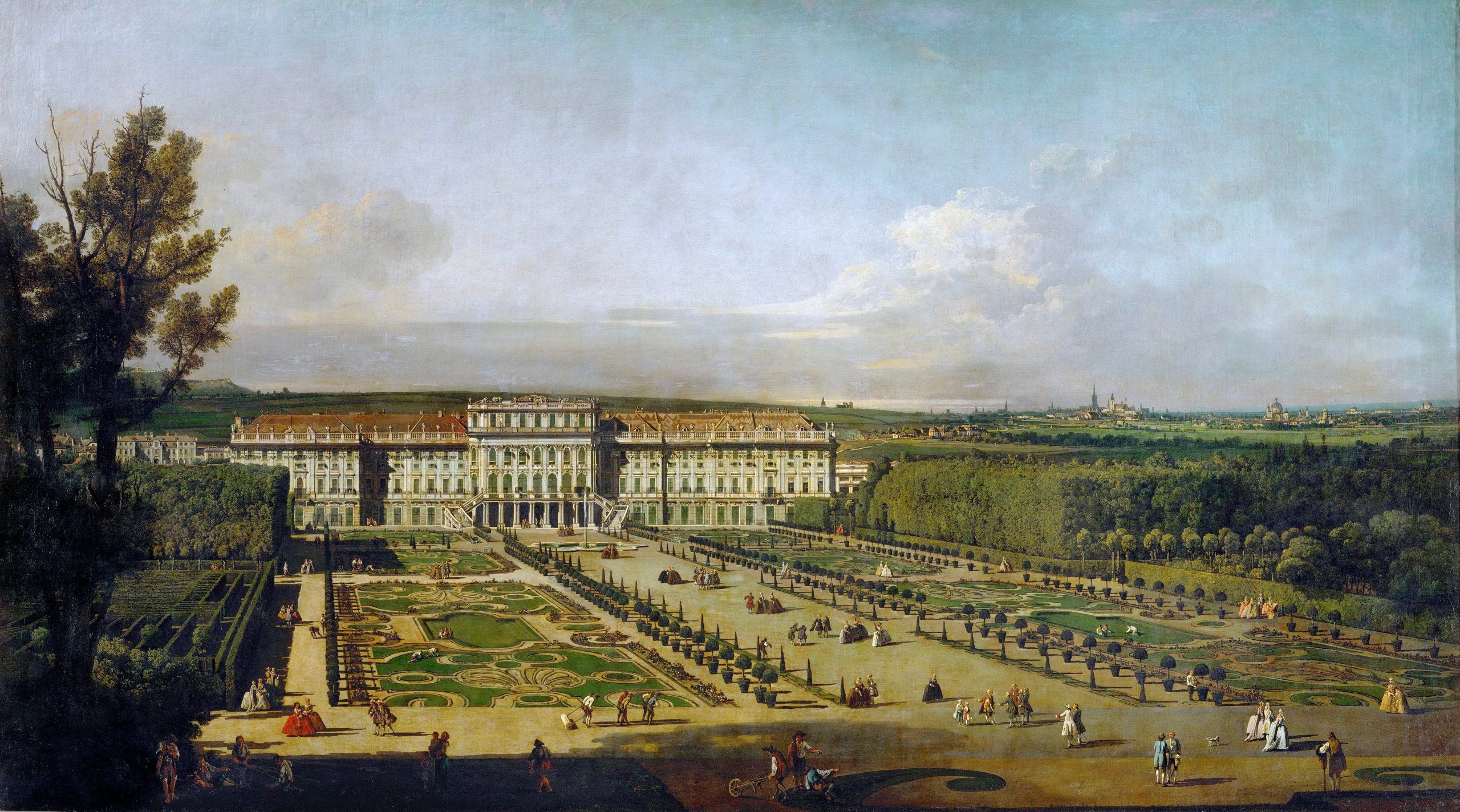
I was pleasantly surprised that several of the movies that stood out for me this year were those that featured rich portraits of Black male characters. Some were real-life heroes like civil rights icon Bayard Rustin, portrayed by Colman Domingo in “Rustin,” or famed lawyer Willie Gary (whom I have met) portrayed by Jamie Foxx in “The Burial.” Damian Young briefly appeared in “Air” as basketball legend Michael Jordan. And we watched the complicated saga unfold of a trailblazing King of Rock n’ Roll in “Little Richard: I Am Everything.”
Fictional Black male characters were equally impressive on the big screen, especially the author Thelonius “Monk” Ellison played so brilliantly by Jeffrey Wright, and his party-hardy brother played by Sterling K. Brown in “American Fiction.” Colman Domingo turns up again as “Mister” in “The Color Purple,” with Corey Hawkins as his son “Harpo.” And I loved the gentle performance of Echo Kellum as the inspirational teacher Mr. Benedict in “Are You There God? It’s Me, Margaret.”
I haven’t seen so many Black men on the big screen since 1991 when “Boyz In The Hood,” “New Jack City,” “Jungle Fever,” “A Rage in Harlem,” and “The Five Heartbeats” debuted.
Rather than write a traditional top ten list, some of the following slots contain thematically linked double and triple bills, including an alphabetized three-way tie for #1…
1. ESSENTIAL HISTORY

“American Fiction”
Mere months after interviewing acclaimed actor Jeffrey Wright at this year’s Cannes Film Festival, he received some of the best reviews of his career for his lead performance in Cord Jefferson’s subversive satire about a Black author whose attempt at skewering racial stereotypes inadvertently earns him a massive following—who aren’t in on the joke. Jeffrey Wright’s droll, comedic performance in “American Fiction” cements his place as one of the finest actors today. His supporting actors, Erika Alexander as his neighbor and love interest, Tracee Ellis Ross as his sister, Issa Rae as a fellow novelist, and Leslie Uggams as his mother help to round out this portrait of an upper middle class African-American family. A side story about the family’s long-time Housekeeper (Myra Lucretia Taylor) and the Mailman (Raymond Anthony Thomas) adds a warm poignancy.

“Killers of The Flower Moon”
Upon seeing Martin Scorsese’s long-awaited adaptation of David Grann’s novel at Cannes, I knew that the director had made another masterwork. This film chronicles the true story of the murder of oil rich Native Americans in the 1920s. Leonardo DiCaprio plays Ernest Burkhart, a greedy man who falls for an indigenous Osage woman (Lily Gladstone), all the while assisting his uncle (Robert De Niro) in a devious plot to rob her of her oil rights. Jesse Plemons stars as an FBI agent investigating the suspicious deaths of the Osage women. But Scorsese rightfully makes the plight of the Osage people the focus of the film, rather than the FBI.

“Origin“
Ava DuVernay’s astonishing adaptation of Isabel Wilkerson’s essential novel, Caste: The Origins of Our Discontents, stars the amazing Aunjanue Ellis-Taylor as the author who links the injustices made throughout human history by illuminating the unspoken system of caste that fuels them. In America, we speak of “racism,” but Wilkerson digs deeper and uncovers how the connective threads of the caste system in India is tied to the holocaust in Germany, and how it is also tied to the enslavement of African-Americans in America. Intriguing.
2. REAL-LIFE HEROES

“Rustin”
No list of this year’s Oscar contenders is complete without Colman Domingo, whose portrayal of the titular Black organizer in George C. Wolfe’s rousing biopic gives the man who made the 1963 March on Washington a reality his rightful place in history. While Bayard Rustin was highly admired by Dr. Martin Luther King, Jr. and others, his role as organizer of the March on Washington has been much diminished in history because he was gay. At that time, homosexuality was a crime in some jurisdictions, and/or a reason to threaten one with blackmail. The real Bayard was a learned intellectual and Domingo brings to life the quick wit and organized strategic thinking of the man.

“The Burial”
Maggie Betts unearths another crowd-pleasing true-life story with this look at the unlikely bond forged between an elderly white funeral director (Tommy Lee Jones) and his successful Black lawyer (Jamie Foxx). I have met the real life Willie Gary and I found him to be as outwardly self-confident and delightfully flashy as brought to life by Jamie Foxx. Foxx inhabits the screen. When you are down and seemingly out, we all deserve someone in the trenches who will fight for us like this. Jurnett Smollett as the opposing attorney also gives a noteworthy performance.
3. BLACK ICONS

“Little Richard: I Am Everything”
Lisa Cortes’ powerful documentary about the King of Rock ‘n Roll examines both his unequaled impact on American music as well as the shame he harbored regarding his sexuality. There are powerful scenes that deconstruct the racism of the times, and the themes of inequality in the power held by musicians of different races. I also caught a glimpse of a more introspective Little Richard than I remembered.

“Air”
Rarely has a film so beautifully and entertainingly chronicled the behind-the-scenes saga by which the parent of an icon guided the formation of their child’s celebrity with the utmost integrity. In this film wonderfully directed by Ben Affleck, we get the eye-opening details of the pivotal role basketball legend Michael Jordan’s mother, Mrs. Deloris Jordan, played in allowing shoe salesman Sonny Vaccarro (Matt Damon) to court her son on Nike’s behalf. I call “Air” a Love Letter to Michael Jordan’s Mother. And who wouldn’t want to be represented on the big screen by Viola Davis! We should all be so lucky.
4. JOURNEYS TOWARD INDEPENDENCE

Greek auteur Yorgos Lanthimos delivers another delightfully strange and provocative parable, this time with Emma Stone starring as a woman brought back to life by an eccentric scientist (Willem Dafoe). As she starts to learn what it means to be a human of the female persuasion, her growing autonomy becomes an increasing threat to the men in her life, including Mark Ruffalo as we have never seen him. From the very first film I saw by Lanthimos at Cannes (“Dogtooth“) to this one, I have to say I am a fan of his weirdly eccentric storytelling. And Emma Stone is a revelation.

“The Color Purple”
Alice Walker’s landmark novel about a young woman’s journey toward independence has been turned by director Blitz Bazawule into a rousing hybrid drama/musical, adapted from the Broadway musical. American Idol winner Fantasia Barrino takes on the role of Celie that was previously immortalized onscreen by Whoopi Goldberg in Steven Spielberg’s 1985 film. This version is sumptuously photographed by Dan Laustsen. Colman Domingo told me recently that it was the path for redemption that this adaptation allowed the “Mister” character that persuaded him to undertake the role.
Danielle Brooks as Sophia (originally Oprah Winfrey) is also a marvel to see. Like Winfrey before her, Sophia is an unapologetically big-walking, loud-talking woman who no man can tame. And I like that this film gives each character a bit more of an evolution. Fantasia said the movie’s presentation of her interior imaginary life coaxed her back into character as Celie. Otherwise it would have been too painful for her to reprise her Broadway role. Taraji P. Henson is a hoot as Shug Avery. The ending scene at the outdoor picnic just blows me away. That beautiful tableau is what family is all about.
5. SLICE-OF-LIFE

Celine Song’s wrenching debut feature centers on a woman (Greta Lee) who finds herself perched between the man (John Magaro) she married and the man (Teo Yoo) whose path she meaningfully crossed more than once in the past. This slice-of-life love story comes across so authentically, that when I saw it at a screening, I heard the sniffles and sobs of women sitting in their seats long after the lights came up.

Filmmaker Alexander Payne re-teams with “Sideways” star Paul Giamatti for a warm-hearted comedy about a curmudgeonly professor at a boys’ prep school who bonds with the school’s Chef, played by Da’Vine Joy Randolph, over a holiday period. Some students have to stay at school for various reasons and Giamatti and Randolph are assigned as their guardians. A quiet, but slowly affecting atmosphere develops.
6. FOREIGN GEMS AT CANNES

Two films that I caught at this year’s Cannes Film Festival star the great German actress Sandra Hüller, starting with the winner of the Grand Prix, Jonathan Glazer’s profoundly chilling meditation on the compartmentalization of evil. Based on the novel by Martin Amis, the film stars Christian Friedel as the commandant of Auschwitz who lives with his wife (Sandra Hüller) and children in a picturesque house just outside of the camp’s walls. While they go about their daily lives, making plans for parties, and having picnics, you see the smoke coming from chimneys where Jews are being incinerated. How could they go about their lives so nonchalantly, we ask. (Questions that occur to me sometimes today as I watch the news unfolding around the world.)

This engrossing mystery stars Hüller as a famous author accused of killing her husband, much to the bewilderment of her blind son (Milo Machado Graner). The film’s director, Justine Triet, became only the third woman in the festival’s history to receive the Palme d’Or. The beauty of this film is that it is presented more as scenes from a marriage than a murder mystery. And it lets you draw your own conclusion. Was it murder, or an accident? You be the judge.

Aki Kaurismäki’s delightful romance centers on a pair of loners (Alma Pöysti and Jussi Vatanen) whose attraction toward one another is complicated by all sort of factors, yet the gravitational pull between them, and their shared love of cinema, remains unmistakable. As minimally understated as some of Kurismaki’s earlier films (“Match Factory Girl”), but with more pent up emotion. And humor.
7. BARBENHEIMER

“Barbie“
The year’s biggest smash hit was an unofficial double feature released on July 21st that consisted of two risk-taking blockbusters by celebrated directors, starting with Greta Gerwig‘s enormously entertaining and startlingly substantive big screen vehicle for Mattel’s classic doll. Barbie, played to perfection by Margot Robbie, undergoes an existential crisis that takes her from Barbieland to the real world. I think most of us girls had Barbie dolls at some time or the other. And I remember the joy in the Black community when Black Barbies and her friends were introduced. Ryan Gosling is pitch-perfect and hilarious as Ken, who finds that in the real world, men rule. But don’t think Barbie is falling for that. Subversively funny. America Ferrera gives a speech to the dolls that causes them to wake up. Brava Greta Gerwig on becoming the first woman director to bring in over a billion dollars at the box office!

Completing the “Barbenheimer” double bill was Christopher Nolan’s three-hour, dialogue-filled epic about J. Robert Oppenheimer, the man who developed the atomic bomb, played by Cillian Murphy. Christopher Nolan’s films make you think. His movies also make you sit up and take notice because the dialogue flies so fast that you have to listen carefully to take it all in. But you can luxuriate in the settings he creates that allow you to visit the interior lives of the protagonists. Oppenheimer developed the bomb, but had remorse about using it. Nolan’s films are always interesting, and he makes good use of Robert Downey, Jr.
8. FACING REALITY

“STILL: A Michael J. Fox Movie“
I was apprehensive about seeing Davis Guggenheim’s documentary “STILL: A Michael J. Fox Movie,” because frankly I was wondering whether it would be painful taking me back to the challenges we faced with my late husband Roger’s illness. Fortunately, I am happy to report that it was a revelation to see someone who at one time was the number celebrity in Hollywood have such transparency and honesty about his own struggles with illness.
Traci Fox, Michael’s wife of over thirty years, whom he met when he was filming his popular television show “Family Ties,” is still very much in the picture. My heart melted when I saw the calm and stability she brought to his life in their domestic scenes together. One of the beautiful things the film does is show Michael as a family man with his children, who clearly love him and whom he clearly loves. There is no pity or sentimentality. Just a family facing reality and making the best of each day. Thank you for this beautiful documentary.
9. FACING THE BEYOND

When I was a young girl, I pondered what happened after we died. I also gave some thought to things such as the meaning of life and why we are here. Stephen Gray and Chris Radtke’s new documentary, “After Death,” purports to answer some of those questions, and in a surprisingly convincing way, says that death is not the end of life. It is merely a transition. It presents doctors and others in the medical or research fields who show cases of people who are either clinically dead, or in a medically induced coma, who nonetheless can describe what happens after they died. In some cases they say they rise above their bodies and can view the operating rooms. They even recount conversations that took place while they were either sedated, or declared clinically dead.
The filmmakers wisely tells about near death experiences (NDE’s) in an even-handed way, including using interview footage of Dr. Raymond Moody, the doctor widely credited with coining the term NDE’s. They also show how widely shared these experiences are around the world, and not related to a specific religion, or race, or gender. Rather, they explore consciousness through a semi-scientific lens, and provide enough credible sounding people who say they have experienced what happens when your consciousness travels to the other side, while your body remains here.
10. COMING OF AGE

“Are You There God? It’s Me, Margaret.”
Judy Blume’s 1970 novel about a young girl’s transition into womanhood has finally been adapted into a wonderful film from writer/director Kelly Fremon Craig that explores not only the coming of age journey experienced by its titular heroine (Abby Ryder Fortson) but by her mother (Rachel McAdams) and grandmother (Kathy Bates) as well. Sweet and perceptive.




